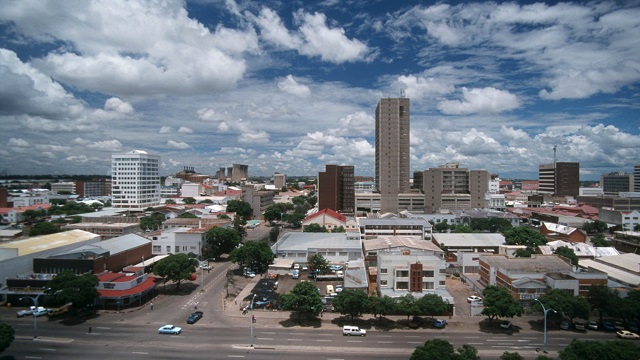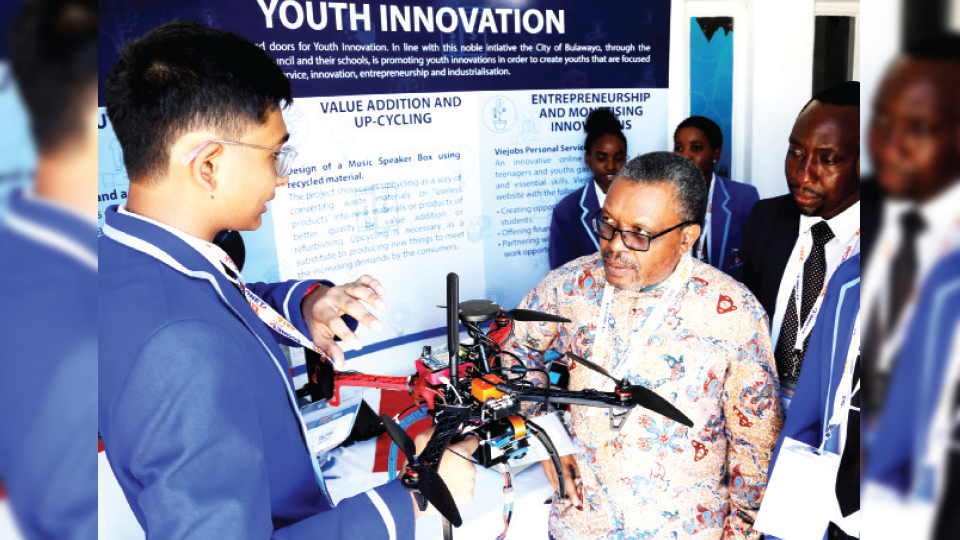‘Byo companies coming back to life’

Oliver Kazunga, Senior Business Reporter
BULAWAYO has recorded a remarkable improvement in industrial revival since 2013, riding on interventions by the Government and private sector input, Industry and Commerce Deputy Minister Chiratidzo Mabuwa has said.
Once the industrial hub of Zimbabwe, Bulawayo has suffered massive de-industrialisation in the face of a harsh economic climate that has seen some companies closing shop as others scaled down or relocated.
Government recently championed policy support measures such as Statutory Instrument 64 of 2016 among a host of doing business reforms that have catalysed industry revival through attracting investment.
Responding to questions in Parliament Wednesday, Deputy Minister Mabuwa said several Bulawayo firms were showing signs of rejuvenation but stressed the need to do more to consolidate gains made so far.
“As we speak right now, there are certain companies that are there in Bulawayo that have been revived. I can give you an example such as Datlabs. In 2013, when we inaugurated our focus on Bulawayo, Datlabs was operating at 18 percent, but at present, they are now operating at 78 percent,” she said.
“We have other textile industries that have been revived, but that is not sufficient.”
While some have closed, a number of companies have since set up shop in the city in the last few years. Many, particularly in the food processing sector such as United Refineries, milling companies, bakeries and some in the service and retail sectors have also recorded improved business.
“Let me say that it is important that the country should know that yes, we are not just looking at Bulawayo, but the entire country. What is important is that Bulawayo, as we know, is the industrial hub of Zimbabwe.
“What we are doing, as we planned to do just after our promotion at the Trade Fair this year, was to ensure that we see investors focus on Bulawayo,” said Deputy Minister Mabuwa.
The Deputy Minister implored Bulawayo businesspeople and potential investors seeking opportunities in the city to approach her ministry as Government has set aside “certain” funds for industrial revival. Despite the liberalisation of the economy in February 2009, Zimbabwe’s manufacturing sector has struggled to stimulate productivity to competitive levels due to cash flow challenges among other reasons.
“What I ask is that as the people are listening, those people in Bulawayo, if there are any projects that they have, they should try and ensure that as they do these businesses, they should approach us because we have certain funds that are there, that have been set aside for the revival of industries, especially those that benefit or come from Statutory Instrument 64 of 2016,” she said.
In June last year, the Government promulgated SI 64/2016 with a view to protect local industries from cheap imports by removing several goods from the Open General Import Licence.
Industry and Commerce Minister Dr Mike Bimha has clarified that goods listed under SI 64/2016 can only be imported when the local manufacturing sector is not able to meet demand at a particular time.
SI 64/2016, among other positives, has breathed life into some existing manufacturing firms. Some foreign companies have are setting manufacturing plants in the country owing to a huge market share existing in the country.
According to the Confederation of Zimbabwe Industries, capacity utilisation in the manufacturing sector last year improved to 47.4 percent from 34.3 percent the previous year.
The improvement in capacity utilisation was largely a direct effect of policy interventions the Government has promulgated as well as the ease of doing business reforms being initiated in the country.
@okazunga.











Comments